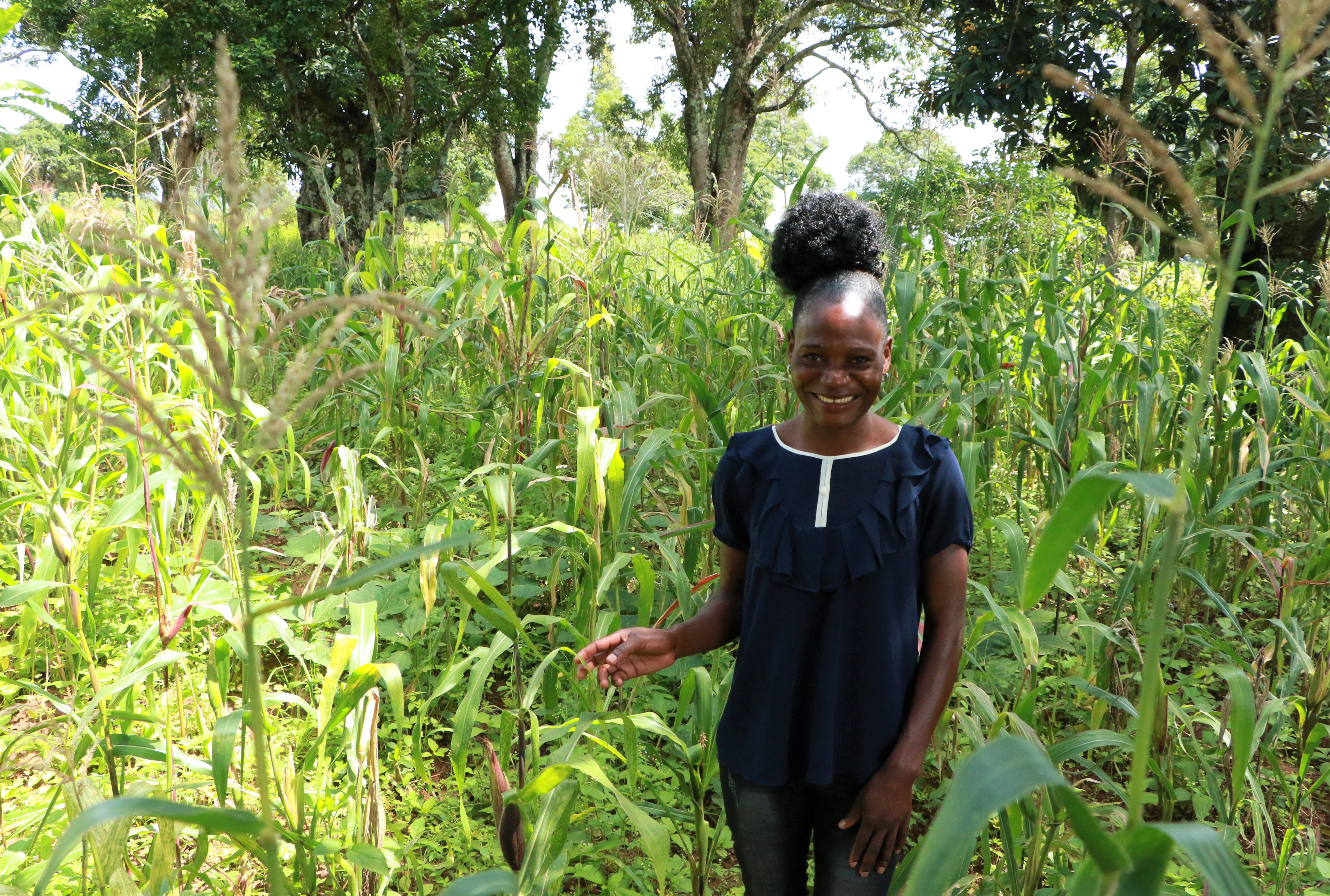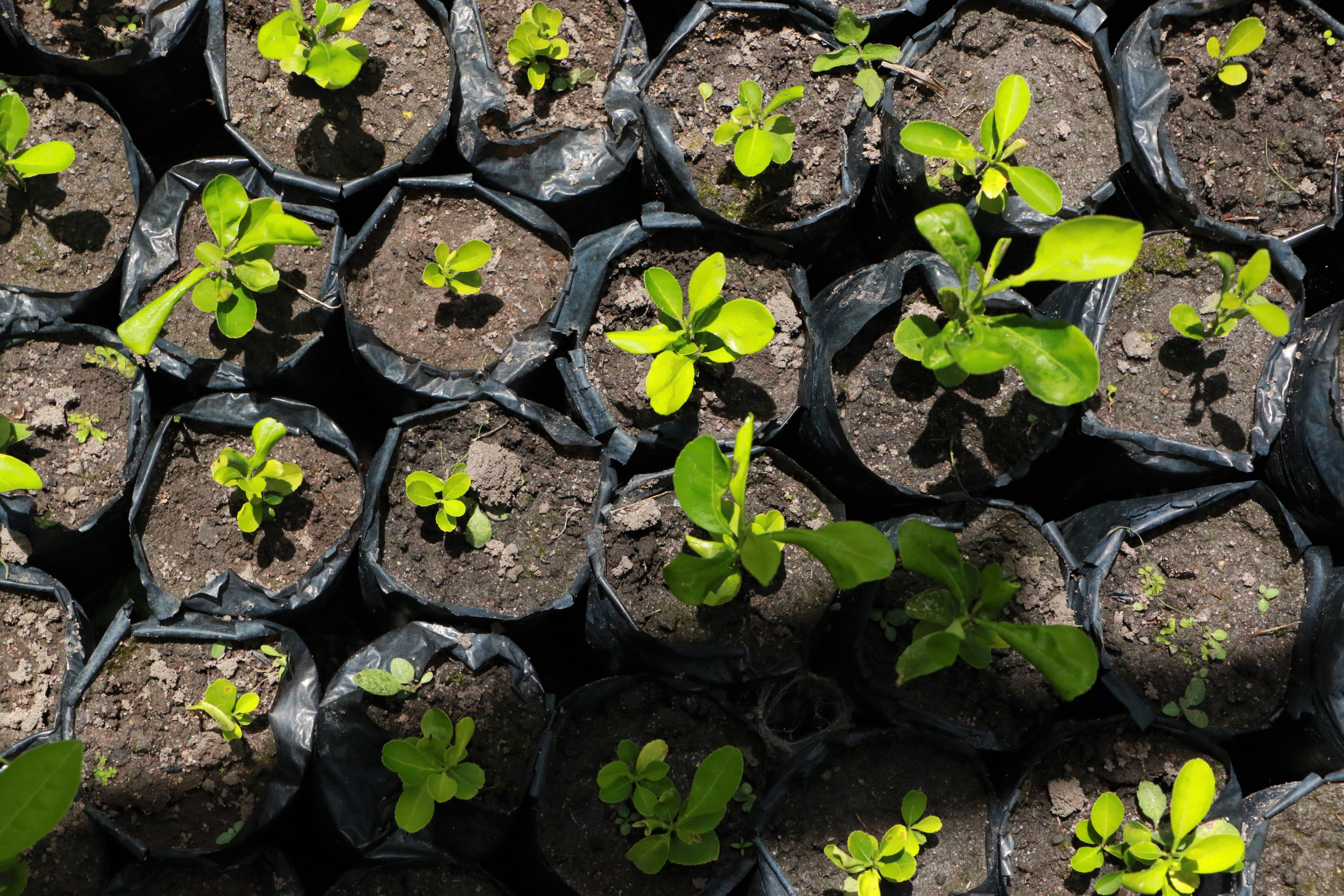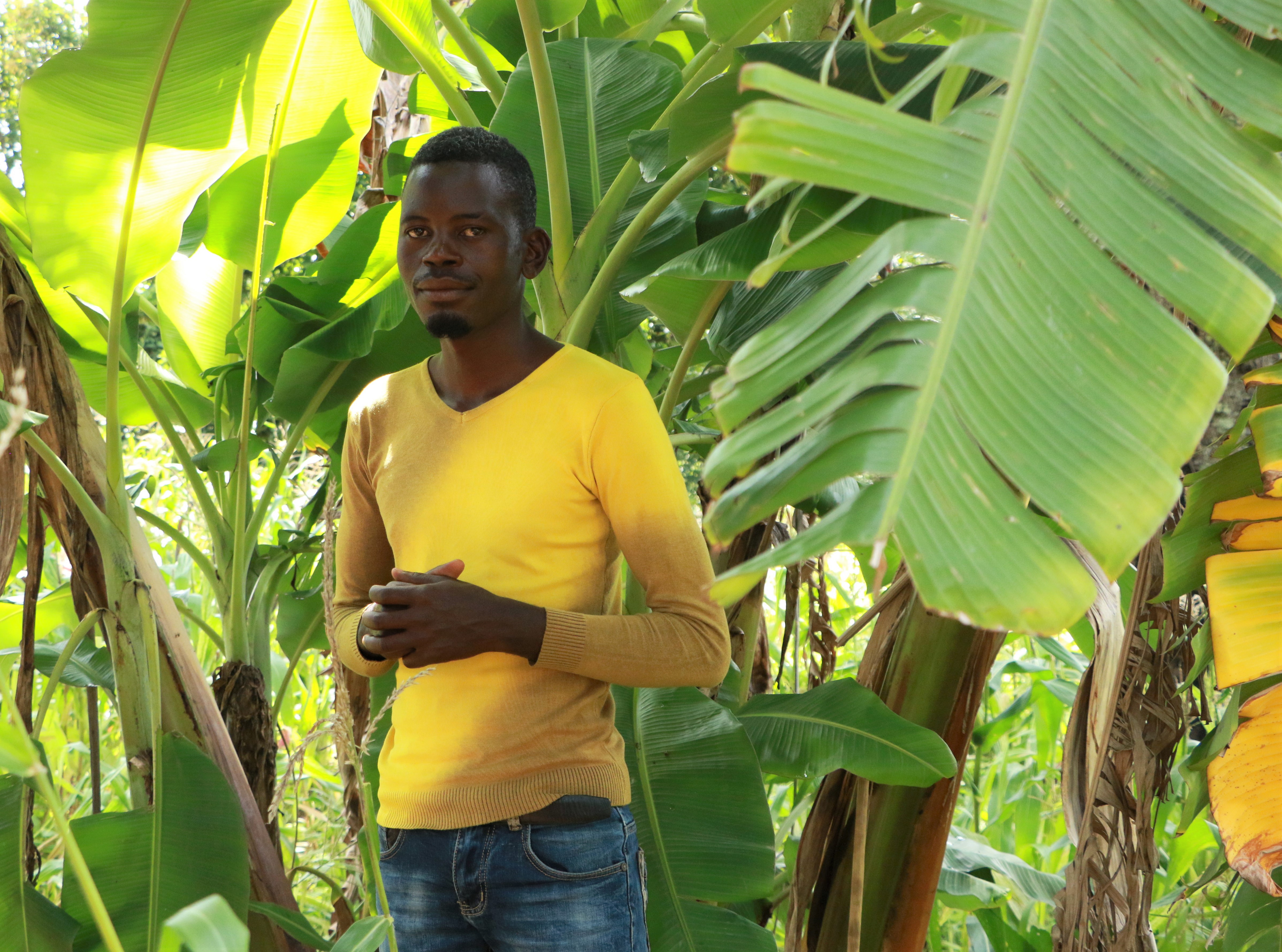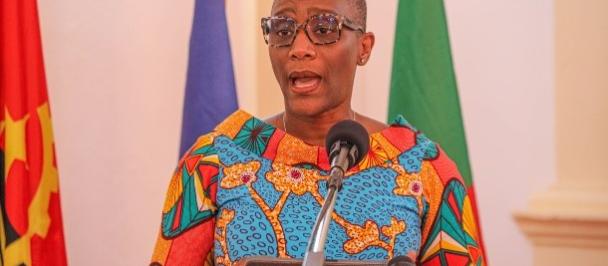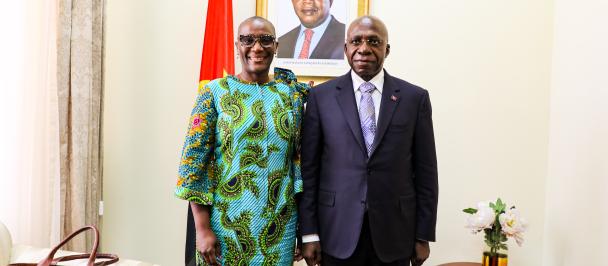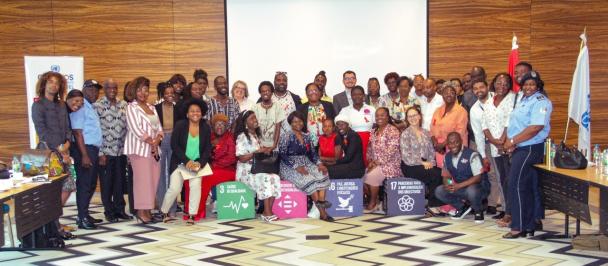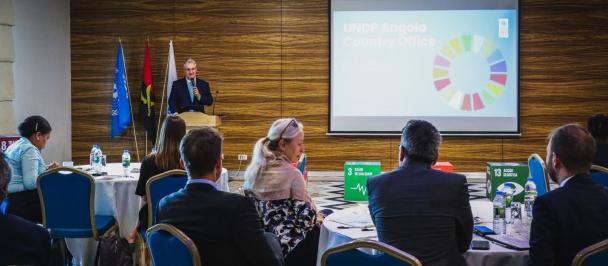Angela Chindossi loves teaching and loves nature, so she found the perfect way to combine her two passions: she teaches environmental protection classes to children and school teachers in the Huambo province, in the central region of Angola. In two years, "I have already taught 1120 children and 57 teachers", says the proud teacher, "I like it very much".
At 28, Angela collaborates with the project “Promoting Sustainable Charcoal in Angola through a Value Chain Approach”, implemented by the Ministry of Culture, Tourism and Environment, with support from ADPP, José Eduardo dos Santos University, Cordoba University, and funding from United Nations Development Program and Global Environment Facility. She works with the environmental education aspect of the project, which aims to teach communities and future generations how to preserve this precious asset: the forests.
Unknowingly, by teaching children, from 7 to 16 years old, and other teachers how to take care of forests and nature, promoting environmental sustainability, Professor Angela ends up materializing the motto of the International Women’s Day 2022: “Gender equality today for a sustainable tomorrow”.
With her direct and indirect support, in the communities of Chipipa and Mbave, 6300 trees have already been produced in about 20 schools. The trees are planted inside the schools and in the surrounding spaces by teachers and students, and offered to the communities, so that they plant and take care of them.
Throughout the year, Angela organizes fun activities to entertain, teach and engage the children, such as drawing contests and walks in the forests around them. "They really enjoy it and many draw very well," the teacher says. During the walks "in the native forests, I explain the importance of planting trees and they go around naming the different forest species we find in the forests."
Among the educational games that the youngest enjoy the most are the "Environmental Olympics", which the teacher implemented to attract more children to the activities. She explains the olympics are made up of small challenges and contests and that last time 100 children participated. 22 of them won prizes, like notebooks, pencils, pens, backpacks and other school supplies.
"I need to work, I need to produce. Planting is the way forward," sing some of the students of teacher Angela, in Chipipa, voicing the sustainability message. https://youtu.be/hSz7-f6xRSg
To be able to properly talk about forest protection and environmental sustainability, Angela, who was already a school teacher, participated in the environmental training program of ADPP, an that is a partner in this project.
The project to promote sustainable charcoal aims to teach people in the communities how to produce charcoal in an environmentally friendly way, by cutting down fewer trees, using improved kilns that emit less polluting gases, and showing them how to produce nurseries to plant new trees in the most damaged areas. This avoids deforestation, promotes sustainable management of natural resources, and contributes to the reduction of CO2 emissions.
Another advantage of the project is helping communities create alternative means of income, such as the production and sale of natural honey, and the processing of fruit into jam, marmalades and juices, also for sale. This will reduce the need for charcoal production and, consequently, the pressure on the forests, while also contributing to fight poverty.
She is happy with the work she does, because both the children and the teachers share the lessons with people nearby, spreading the important message of nature preservation. "The students tell their parents and uncles," and the other "teachers pass on to their students," and so on.
Gregório Estanislau, 33, is one of Angela's students who learned the lesson well and now teaches others. He is a teacher in the community of Chipipa and has helped his students, aged 8 to 12, to plant 14 trees at the school. And "the students take care of the trees," says Gregório.
In the training, Angela taught him “how to take care of the environment”, he says. “We learned how to create nurseries for native trees and fruit trees, and we have already planted some plants around the school, and want to continue," adds Gregorio. "We have planted trees not only in our school, but also in the neighborhood schools”.
To the students and their families, especially the ones that get their livelihood from the charcoal production, Gregorio keeps repeating the message of sustainability he learned from Angela: "Some trees take 7 years to grow and 2 minutes to destroy.
The project's environmental education program also provides classes about the environment for the adults in the communities and villages of Huambo, so Professor Angela is well known in this area. She is helping to build a more sustainable future, one lesson at a time.

 Locations
Locations